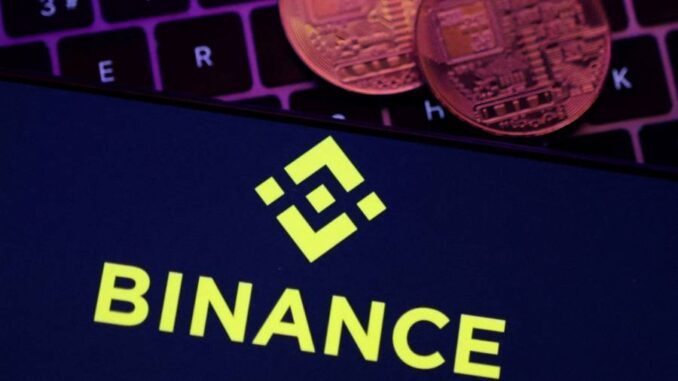
US financial regulators have shut down further issuance of BUSD, the Binance-branded stablecoin, as a clampdown on the crypto sector gathers momentum.
Paxos, the stablecoin company behind issuance of the token, said on Monday it would end its relationship with the Binance exchange over BUSD, which is used to help traders move more quickly in and out of the crypto market.
The halt to minting BUSD from February 21 was called by the sector’s regulator, the New York Department of Financial Services, and comes as US authorities step up their scrutiny of crypto market practices.
The Securities and Exchange Commission last week cited oversight of digital assets as a priority for 2023 and settled charges with Kraken, another exchange, over a crypto-staking programme. Kraken agreed to pay $30mn and discontinue the activity in the US.
Stablecoins are often used as a store of value between bets on digital coins because they are designed to track the price of the dollar and other traditional currencies. About 16bn BUSD are in issue, making it the world’s third-largest stablecoin, according to CryptoCompare.
Although the BUSD token is branded as Binance USD, it is not issued or redeemed by Binance. However, the token represented roughly 40 per cent of monthly trading volume on the Binance exchange last month, according to CryptoCompare.
The NYDFS cited “several unresolved issues” related to Paxos’s oversight of its relationship with Binance for the token. The agency added that it had not authorised another Binance-issued token, which is linked to BUSD and uses Paxos’ stablecoin as collateral.
“US regulators appear to be looking to crack down on the industry, possibly at the expense of seeing how digital assets can coexist within the wider traditional financial system,” said James Herring, partner at UK law firm Addleshaw Goddard.
Binance said in a statement on Monday that the market cap of BUSD would “only decrease over time”. The exchange said it would be “reviewing projects in certain jurisdictions given ongoing regulatory uncertainty”. The sprawling crypto exchange earlier this month suspended US dollar payments on the exchange but did not give a reason for the decision.
“[Binance’s statement] could be read as a thinly veiled admission that they don’t want to be in the United States,” said Ilan Solot, co-head of digital assets at Marex Solutions. “The treatment crypto is receiving by US regulators is going to push the industry out of the country,” he added.
Paxos said existing tokens would remain redeemable to customers for at least a year. It added that all the BUSD tokens it had issued were backed 1:1 with US dollar-denominated reserves and were fully segregated and held in bankruptcy remote accounts.
Data-tracking crypto transactions indicated that owners of BUSD were already beginning to switch their holdings into tether, the industry’s largest stablecoin, said Jacob Joseph, a research analyst at CryptoCompare.
Binance, which has a separate US company to service US customers, has faced scrutiny from regulators around the world including Singapore, the Netherlands and the UK.
However, the sprawling crypto exchange is facing fresh scrutiny in the US as the Biden administration seeks to clamp down on illicit financing risks associated with digital assets.
Last month, the Treasury department’s Financial Crimes Enforcement Network named Binance as a counterparty to Bitzlato, whose founder was charged with conducting an unlicensed money-transmitting business that transferred more than $700mn in illicit cryptocurrency. The group said it was committed to working with law enforcement.






Be the first to comment